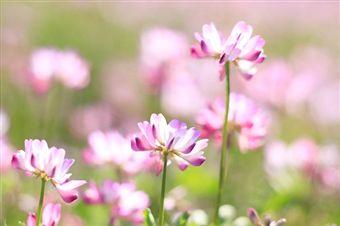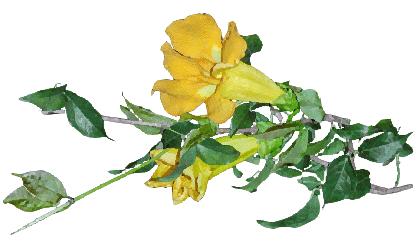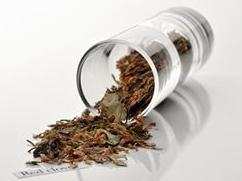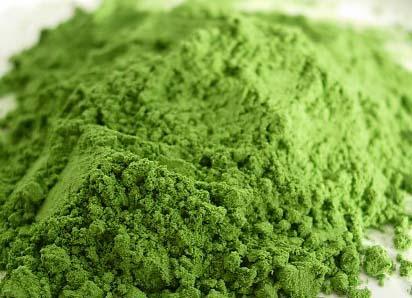Here are twenty herbs that just might help your fight against cancer. You will be pleased to know, even after May 1st 2011, you can still have them prescribed and made for you by experts working with CANCERactive.
 1 ASTRAGALUS (Huang Qi): A Chinese herb; an immune system booster, known to stimulate bodys natural production of interferon. It also helps the immune system identify rogue cells. Work with the herb in both cancer and AIDS cases has been encouraging. The MD Anderson Cancer Centre in Texas conducted research showing that taking Astragalus when having Radiotherapy doubled survival times.
1 ASTRAGALUS (Huang Qi): A Chinese herb; an immune system booster, known to stimulate bodys natural production of interferon. It also helps the immune system identify rogue cells. Work with the herb in both cancer and AIDS cases has been encouraging. The MD Anderson Cancer Centre in Texas conducted research showing that taking Astragalus when having Radiotherapy doubled survival times.
2 BERBERIS FAMILY (e.g. Podophyllum peltanum): Slow active purgative. Research has shown these herbs to have a strong action against cancer and they have been used with many cancers, especially Ovarian cancer.
3 BLOOD ROOT (Sanguinaria canadensis): Research shows consistent anti-neoplastic activity. It is effective against cancer tumours, and can shrink them; and has proven useful with sarcomas.
4 BUTCHERS BROOM (Ruscus aculeatus): The active ingredients of this herb has been found to be the ruscogenins which have tumour-shrinking and anti-oestrogenic abilities. Thus its use in the treatment of breast cancer.
 5 CATs CLAW (Uncaria tormentosa): An adaptogen and powerful immuno-stimulant, it enhances the white cells clean up process (phagocytosis). It is an excellent companion to astragalus, curcumin and echinacea. Research indicates it can reduce tumour size, particularly with skin cancers. It also helps reduce the side-effects of chemo and radiotherapy.
5 CATs CLAW (Uncaria tormentosa): An adaptogen and powerful immuno-stimulant, it enhances the white cells clean up process (phagocytosis). It is an excellent companion to astragalus, curcumin and echinacea. Research indicates it can reduce tumour size, particularly with skin cancers. It also helps reduce the side-effects of chemo and radiotherapy.
6 CHAPARRAL (Larrea mexicana): Cancer Watch covered a major research study from the US which heaped praise on this herb. It appears to boost the immune system, stop metastases and reduce tumour size. Seems especially interesting with breast cancer. It is also an anti-oxidant and anti-microbial, with low toxicity.
7 CURCUMIN (Turmeric): This spice (Curcuma longa or Turmeric root) has been shown to have significant anti-microbial and anti-inflammatory activity. That alone seems enough for certain hospitals in America to consider using it in the treatment of polyps and colon cancer. However new research shows that it can both shrink cancer tumours and inhibit blood supply growth to tumours. It is a powerful antioxidant with liver protective benefits, and outperformed several anti-inflammatory drugs without side-effects in research.
8 DANG SHEN ROOT (Codonopsis pilosula): increases both the white blood cell and red blood cell levels, so can be extremely helpful to patients having chemotherapy and radiotherapy, or to patients whose cancer diminishes levels of either.
 9 ECHINACEA: Another known immune system booster, it gained a populist reputation in treating colds. There is research on its helpfulness with brain tumours apart from its abilities to increase the levels of certain immune white cells in the body.
9 ECHINACEA: Another known immune system booster, it gained a populist reputation in treating colds. There is research on its helpfulness with brain tumours apart from its abilities to increase the levels of certain immune white cells in the body.
10 FEVERFEW: This herb caused a storm when research from Rochester University in New York showed it to be more effective than the drug cytarabine in killing leukaemia cells. The US Food and Drug Agency put the active ingredient, parthenolide, on to its fast track programme. Nothing has yet been heard. But then, the FDA has never approved a herb for use as a cancer treatment.
11 GOLDENSEAL: One cause of stomach cancer can be the bacterium Helicobacter pylori. This burrows into the mucous lining of the stomach to hide from gastric acids, and then causes irritation, acid reflux, ulcers and even cancer. Goldenseal is generally anti-microbial and is used in the Caribbean and South East Asia against parasites. Goldenseal, helped by the mineral Bismuth, will kill Helicobacter pylori. Vets seem to know this, even if doctors dont.
12 MILK THISTLE: Known for years to be helpful to the liver, this herb has now been shown to be capable of protecting the liver during chemotherapy. Research in America showed that leukaemia patients who took milk thistle had reduced liver toxicity and chemo side-effects. There is a little evidence that it has its own anti-cancer activity too.
13 PAU DARCO: This tree bark was original thought to be a strong anti-cancer agent, but then its actions were clarified as strongly anti-bacterial, anti-yeast and anti-microbial. That alone might be enough in some cases of cancer cause. But new research on the differing ingredients has shown the quinoids possess immune strengthening abilities and seem to help in cases of blood and lymph cancers.
 14 RED CLOVER: Research from a number of centres including the Royal Marsden has shown its potential as a part of a treatment programme against oestrogen-driven cancers, from breast to prostate. One active ingredient in the so-called Herb of Hippocrates is the anti-oestrogen Genistein.
14 RED CLOVER: Research from a number of centres including the Royal Marsden has shown its potential as a part of a treatment programme against oestrogen-driven cancers, from breast to prostate. One active ingredient in the so-called Herb of Hippocrates is the anti-oestrogen Genistein.
15 SHEEPs SORRELL: Used in Essiac and other herbal remedies it is a cleanser and aids healthy tissue regeneration. There is some suggestion from research that it helps normalise damaged cells and tissue. It is also a highly praised ´vermifuge´ - intestinal worms have little or no resistance to this herb.
16 SKULLCAP (Scutellaria barbata): Research has shown action against many cancer types, for example against cancers of the lung, stomach and intestines.
17 SUTHERLANDIA (Cancer Bush): Peer reviewed research studies indicate that this herb is anti-inflammatory, anti-viral and anti-fungal. It boosts the immune system and inhibits Tumour Necrosis Factor, known to drive wasting in cancer patients.
18 THOROWAX, or HARES EAR (Bulpleurum scorzoneraefolium): Research has shown its ability to enhance the production of natural interferon and it seems especially useful in bone cancer.
 19 WHEATGRASS: One of the top private hospitals in South East Asia extols the benefits of freshly juiced wheatgrass. One shot gives you the chlorophyll of some 12 or more kilograms of broccoli. It acts as a blood purifier, and liver and kidney cleansing agent. After two weeks of daily use, blood and tissue oxygen levels improve, as does circulation. And oxygen is the enemy of the cancer cell, as Otto Warburg told the world.
19 WHEATGRASS: One of the top private hospitals in South East Asia extols the benefits of freshly juiced wheatgrass. One shot gives you the chlorophyll of some 12 or more kilograms of broccoli. It acts as a blood purifier, and liver and kidney cleansing agent. After two weeks of daily use, blood and tissue oxygen levels improve, as does circulation. And oxygen is the enemy of the cancer cell, as Otto Warburg told the world.
20 WORMWOOD: Another Chinese Herb, this has outperformed certain anti-malaria drugs and is now used by the aid agencies. It is strongly anti-microbial and anti-yeast and can be used as an effective part of an anti-candida diet. Also certain cancer treatments cause excesses of yeasts to form (for example, in Leukaemia treatment) threatening the patients health further. Excess yeasts are even felt by some cancer experts to be one of the causes of cancer. However, in recent research Wormwood has been shown to have direct anti-cancer propert
No comments:
Post a Comment